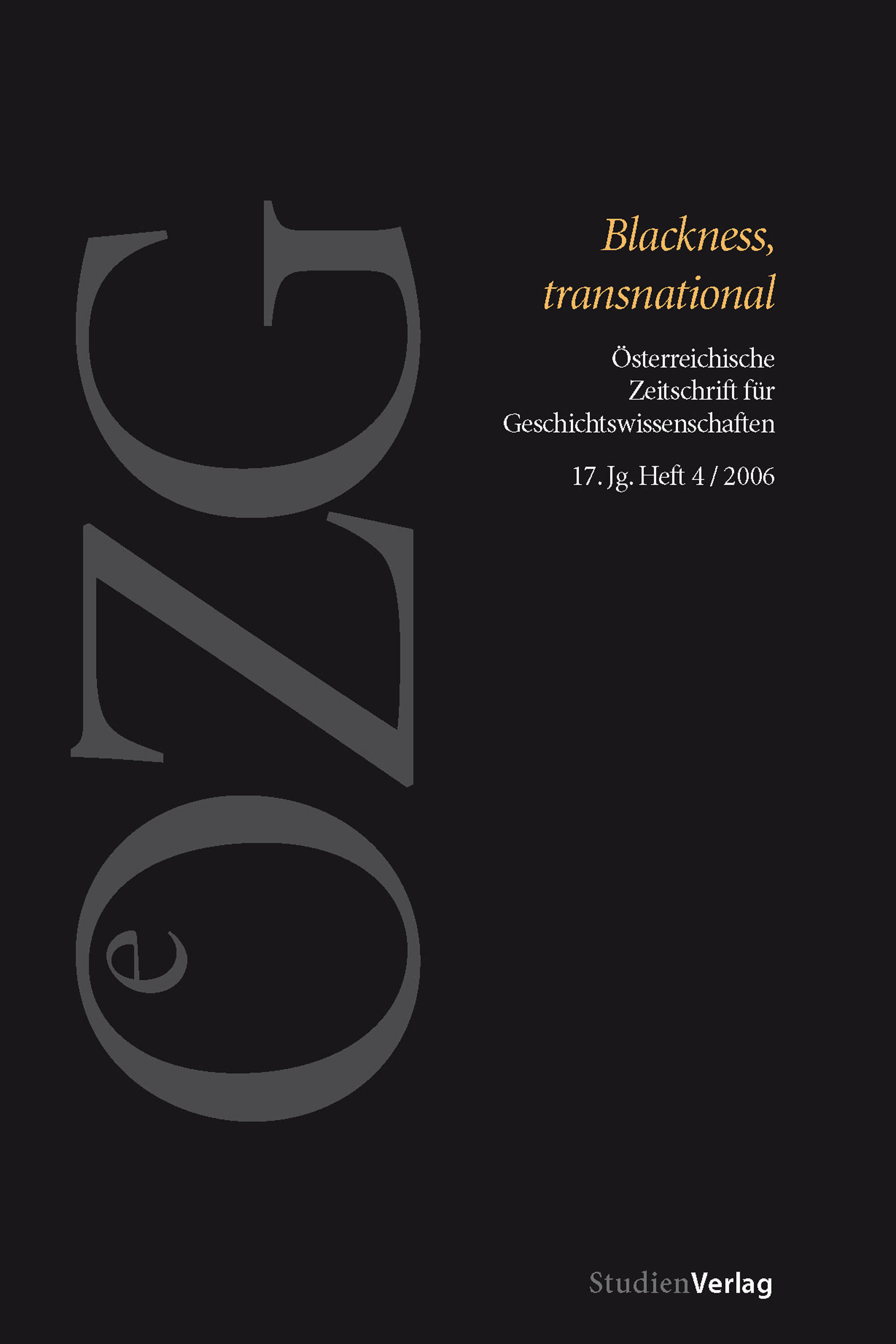Blackness und Transnationalismus: One plus One?
Überlegungen zu einer exemplarischen Herausforderung zeitgenössischer Historiografie
DOI:
https://doi.org/10.25365/oezg-2006-17-4-2Abstract
Departing from the question of ›European blackness‹ at all, this essay wants to specify how to link two specific perspectives of contemporary historiography: on the one hand the paradigm of transnational history, and on the other hand the study of processes of the othering. The reason for this attempt: In recent research one may notice a precarious interaction between a divided discourse on globalization and an anti-essentialist manner of researching the other (and corresponding topoi: racism, anti-Semitism, Orientalism) having become stuck in an epistemologic dualism (fluidism versus essentialism). Both points of view are obstructing a macroanalytic proceeding of research on the ›globalization of ethnicity‹, appropriate to the effective political perils. In a first step existing interpretations are reminded, and prevailing assumptions and boundaries of explication are scrutinized (Paul Gilroy’s concept of the Black Atlantic; Stuart Hall’s model of the Black Triangle). Subsequently the case is made that it requires new ways of talking about bodily inheritance, in order not to get caught in the trap of colour-blind scholarship. This will be exemplified by analyzing Jean-Luc Godards One Plus One and the ›transnational‹ image of blackness in the anti-fordist movement of 1968. It is argued, that a post-humanist epistemology (terms of race, subjectivity, rationality and agency) is needed to get an idea of the role of racialization in post-national and global processes.


